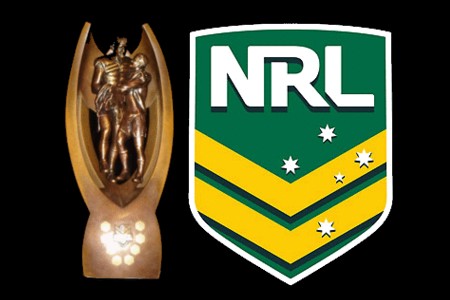Money. Everything I will be writing about in this article comes back to money. Just remember that.
This week we have seen various journalists and media types attacking the National Rugby League over what they believe to be a lack of access to players, coaches and officials. Their argument is that journalists should get more access to people within the game and that the result of more access is more exposure, and in turn, free publicity for the National Rugby League and its clubs.
The National Rugby League meanwhile is running a very large business. It has to look after a number of shareholders in the game including clubs, players, sponsors and broadcasters. In that regard the NRL has a responsibility to many different parties who at the end of the day are looking to get the best financial deal out of the game they possibly can.
What we are seeing here is a clash of old media vs new media. It is the old way of going about things versus the new way of going about things. It is really interesting to watch, and unfortunately for the journalists, I think are fighting a losing battle.
There was once a time when clubs simply didn’t have the resources they needed to reach a large audience on their own. If a club had a message it wanted to get out to the general public there was really only one thing they could do. They had to go to the people that had the infrastructure and resources in place to get a message out there.
Television, newspapers, magazines and radio. Media outlets that over decades had built up networks through which you could distribute content to a massive audience.
Over time sport and the media formed a symbiotic relationship. People went to established news sources to get news about their club. Clubs got the advantage of getting exposure to a market they did not have the ability to reach on their own. In return, the media outlets were able to package up this content to their audience and through advertising they made money out of covering sport. It was a relationship that worked well for a very long time.
Then the internet came along….
For a long time Rugby League and the media were not too sure how to use the internet to their advantage. Some would argue that they are still trying to find the right balance. One thing is for certain though. The internet has given Rugby League and its clubs the ability to distribute content to a massive audience. It has given clubs the resources to package up their own content to distribute it to a massive market.
As the National Rugby League and its clubs have come to the realization that they have the ability to reach a big audience without the media’s help, the obvious question has been raised. What does Rugby League need the media for? Why not just cut out the middleman and speak directly to supporters? Speak directly to your paying customers without your message being edited, filtered or even misrepresented.
I personally believe that in 2014 I have more access to players and to clubs than at any other point in my lifetime. I can hear from hundreds of players via social media. I can get club news through social media, club web sites and the NRL web site itself. I can also hear from players, coaches and officials through podcasts and interviews that are becoming more and more frequent via independent web sites.
20 years ago you got the information the media chose to give you. Now, the information is out there in the world wide web almost instantly.
This is a problem for traditional media outlets as it undermines a business model they have had in place for well over a century. Traditional media outlets are under seige by an open market information source that they have no control over. Content is bring created, not just by a few dozen newspapers, radio stations, magazines and television stations. It is now being produced by thousands of web sites, podcasts, YouTube channels….the list goes on and on.
The National Rugby League is now a very big business and as such they want to make sure that any content the game creates is safe content. Scandals is bad for any big business. Sponsors and broadcasters don’t like scandals at all. What they like is nice, safe content that they know they can invest in without fear of some sort of backlash down the track.
Over the last 18 months we have seen the NRL doing everything it can to turn Rugby League into a safe product that it can sell. They have put in place moves to sanitize the game so that it is safe for sponsors and broadcasters to invest in. You have to remember that for the most part the NRL is an entertainment company. They are selling entertainment that a very large market views every week of the season. The more people that view their product, the more money there is to be made.
In short, the NRL’s goal is to provide a product that can be sold to every single demographic. They want men and women to feel comfortable watching the game. They want kids and the elderly on board. They want the rich and the poor to become supporters.
Every off field incident, every racial slur, every image of a player face down in the grass after a head-knock, every broken bone….they are all a reason for someone in some demographic to be turned off of Rugby League. If you can cut back on as many of these sort of incidents as possible, the game becomes safe content that can be sold on by broadcasters and sponsors.
Some things the NRL can control, such as their rules and their deterrents for poor behaviour. One thing they can not control however is the way the game is reported by the media.
Over the last 20 years the way the media has reported the game has changed dramatically. There are far more tabloid style stories now than there once used to be. To be fair to the media, they are just producing the content that their own customers want. The simple fact is that a story breaking down the Sydney Roosters ability to create a premiership winning side will generate far fewer newspaper sales and far fewer hits on a newspapers web site than a story about the top ten off field incidents over the last 20 years.
As consumers, you and I are part of the problem. We invested our time and energy into tabloid stories and media outlets just started to supply the demand.
From the National Rugby League’s point of view, these tabloid stories are damaging to their business. While the NRL can go a fair way to try and discourage players from acting up, they will never stop human beings from making mistakes, as all human beings do. So what is the solution for the National Rugby League? How to they limit the tabloid style press from having an effect on their business?
They restrict access to players, coaches and officials.
This isn’t necessarily a good thing. The media have played a role in the past of uncovering stories that needed to see the light of day. They have had a role in making sure the game was accountable to the general standards of society. There are times when the media uncovers stories that are not great to read about, that in the short term do damage the game, but these are stories that must be told.
There are many great changes that have happened within Rugby League soley because the media held the game accountable for wrongdoing. That needs to be remembered.
By restricting access and thereby limiting damage tabloid style stories have on the National Rugby League, you also restrict access to the people who chase up the stories that keep the game in line. You limit the media’s ability to be a watchdog, which is one of its key functions at times.
There are many people that love reading or watching content produced by clubs. I personally find it all extremely boring. I have nothing against people that enjoy watching videos of players messing up promotional lines, having a laugh in the gym on a Youtube channel or doing a safe Q & A session on club web sites. Its just not my thing. Outside of watching players play football, I don’t really care what they doing. That is just me though, I know many of you love seeing players away from the game and there is absolutely nothing wrong with that.
For me, the safe content the NRL and its clubs produce is a bit boring. I like to get into the real guts of the game. I like to hear players, coaches and officials answering the tough questions. This is where we start to talk about trust…
I think the majority of people within the Rugby League industry would love to be able to be open and honest. We do see that some people within the game are comfortable opening up about many different subjects, some of which are very personal. You tend to see that happening only when people within the game trust the person interviewing them.
Some of the best interviews I’ve ever seen have been conducted by Phil Gould. People within Rugby League seem like they are ready to be very honest with him on some really difficult subjects. Why is that? Phil Gould is an old footy player, an old coach, a commentator and the GM of the Penrith Panthers. What is it about Phil Gould that allows people to open up in a very public forum?
Trust.
Players, coaches and official know that Phil Gould isn’t going to screw them over. He will ask them tough tough questions, it is up to them if they answer those questions, and after the interview is over, that is that. There will be no more digging into the story from him. There will be no blow-back in a few weeks time. There will be no hounding of a player away from the playing field. There will be no spotlight on their personal life.
You can not say that about some people within the media. There are way too many people who will ask why players don’t want to talk to them one day, and then who savage players the next. There are too many media outlets that cry foul about limited access to players and coaches, and yet who send photographers out to get pictures of players who are just out having lunch to shopping with their friends.
If it was all a one way street and Rugby League had to rely solely on the media to distribute its content there would be nothing the game could do. That isn’t the case any more though. Now that clubs can produce their own content and distribute it to a massive audience all on their own, the media is now held accountable for the way it covers the game.
This whole debate is not a black and white issue. It is very complex. There is not a right side and a wrong side. Is it just two different forces with slightly different goals who are closer together on what their end goal is than they realise.
While it is not the job of journalists to simply become a marketing tool for the National Rugby League, there does have to be some acknowledgment that there are consequences for unfair coverage. What constitutes unfair coverage should be put up for debate, and I really would like to see the media and the NRL sit down and have an open and honest discussion about that.
At the end of the day journalists need Rugby League more than Rugby League needs journalists. There are a thousand content creators out there willing to step in and pump out safe content for the NRL and its clubs. A Rugby League journalist that can’t get an interview is not much good to anyone. On the flip side, as long as millions of people are willing to watch Rugby League games, the game will go on.
When it comes down to it, the media and the National Rugby League are just trying to do the same thing. Protect their own business.
The balance between the National Rugby League and the media will continue to shift. The NRL is adapting to the new media landscape and now it is time for journalists to do the same thing.
This shift is only just beginning. The greater fight will come not too far down the track when the NRL and its clubs start to distribute their own broadcasts directly to supporters via the internet. There will come a tipping point when the NRL decides it can make more money broadcasting games online rather than selling the rights to broadcasts games to Pay TV. When that happens I expect all hell to break lose. For the meantime we get to watch this debate rage in very public forums as journalists look to protect their industry in the face of a landscape that is very different to what it once was.
As Bob Dylan once wrote “The times, they are a-changin'”.









